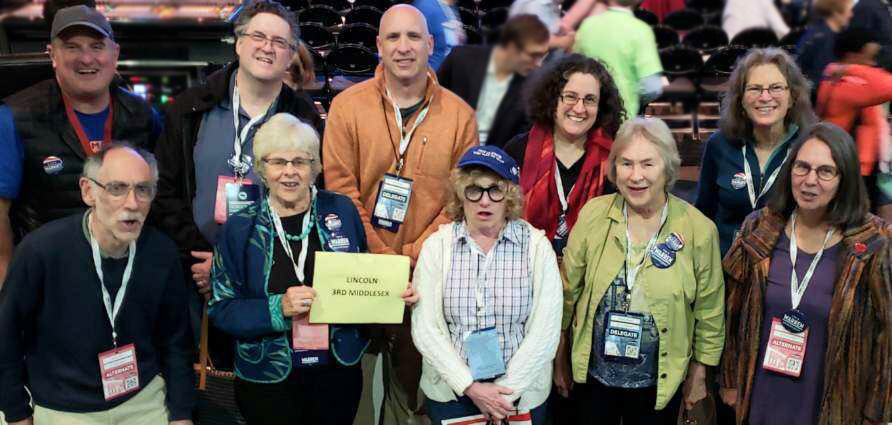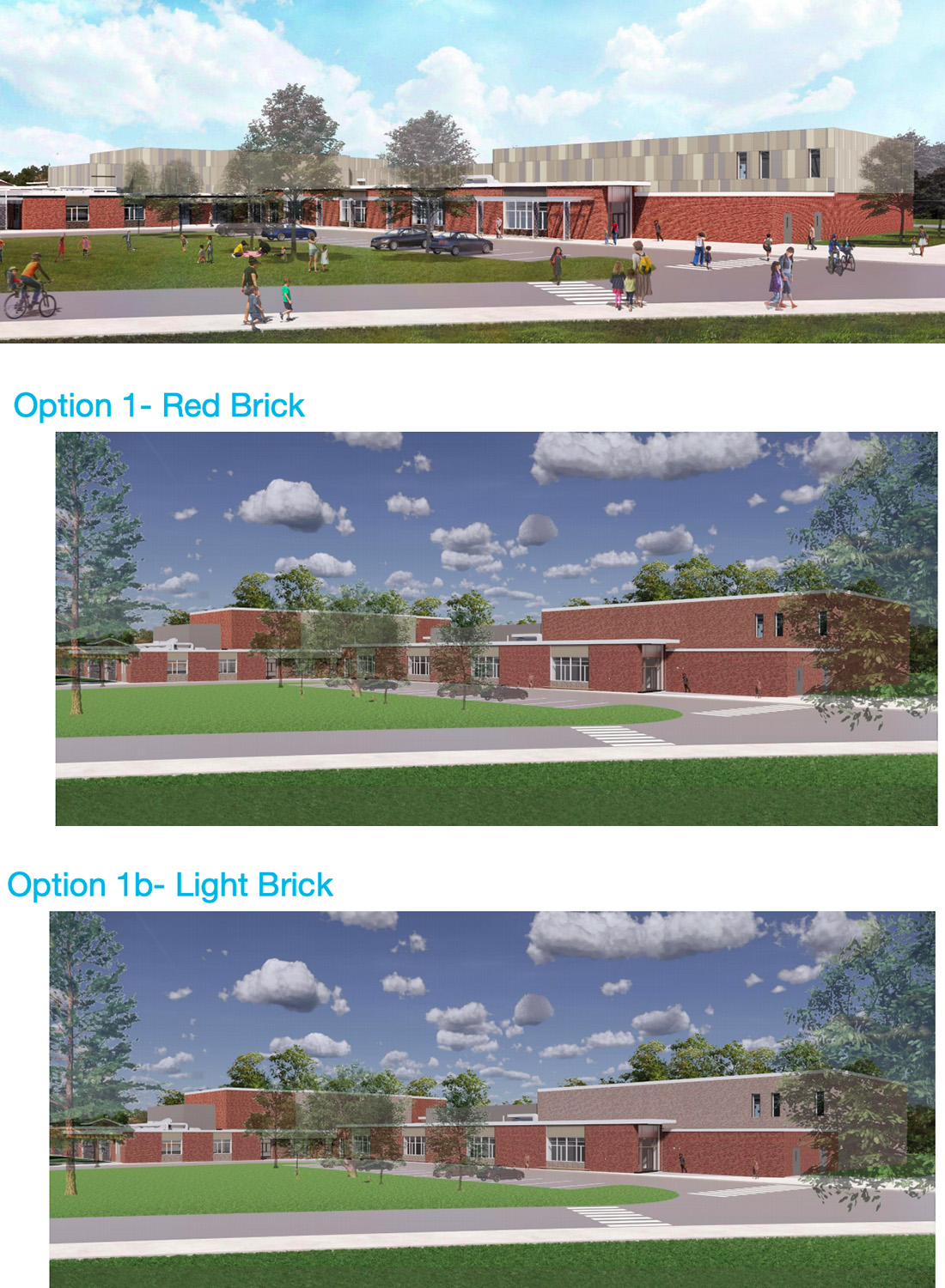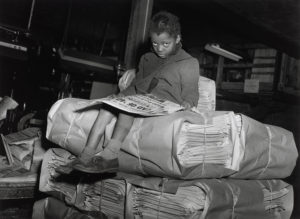To the editor:

Lincoln’s delegates were (front row, left to right) Jerry Gechter, Joan Kimball, Sasha Golden, Barbara Slayter, and Jennie Morris; and (back row, left to right) Alex Chatfield, Travis Roland, Chris Loschen, Alisar Cohen, and Virginia Welles (click to enlarge).
Spirits were high last Saturday as some 4,000 Democrats gathered at the Massachusetts Democratic Convention in Springfield. Representing Lincoln were six delegates, four alternates, and one youth delegate, an activist senior from Lincoln-Sudbury High School.
Shannon Liss-Riordan and Steve Pemberton (candidates for U.S. Rep. Ed Markey’s seat in the primary) emphasized women’s rights, early childhood education, and getting corporate money out of politics. Others including current Reps. Lori Trahan, Seth Mouton, and Ayanna Pressley (via video) focused on fairness and addressing the dilemmas of our increasingly inequitable society.
There were many others with compelling personal stories and political objectives, but three speakers in particular stirred the crowd to cheers and chants as they vigorously waved signs with the speaker’s names: Maura Healey, Ed Markey, and Elizabeth Warren. All three electrified the MassMutual Center with calls for making “a democracy that works for all Americans” (Healey), implementing “big structural change” (Warren), an economy that does not “deny, deprive, and devalue” (Markey), and sharing a common recognition that “Mass Democrats don’t agonize, they organize.”
The final speaker was a compelling presentation by Shannon Watts, founder of Moms Demand Action, who praised Massachusetts for its strong gun laws and touted the organization’s six million members determined to make a difference on gun violence. The plenary session concluded with affirmation by the delegates of 11 resolutions across a broad variety of political, social, and economic topics.
The afternoon breakout sessions featured panelists including State Sen. Jamie Eldridge, Sen. Ed Markey, Rep. Joe Kennedy, and Framingham’s Mayor Yvonne Spicer as well as experts on the issues under discussion:
- climate change, sustainability, energy, and the Green New Deal
- realities of the immigration process
- racism in American politics
- narrowing the racial wealth divide in the Commonwealth
- building coalitions and partnerships in the fight for Democratic values.
Lincoln delegates dispersed themselves among these sessions to glean new ideas and action agendas on each of these topics.
There will be a discussion of the convention and actions proposed for the 2020 elections on Sunday, Sept. 29 from 4–5:30 p.m. in Bemis Hall, facilitated by Lincoln delegates Alisar Cohen, Ginny Welles, Travis Roland, Alex Chatfield, Sasha Golden, Jerry Gechter, Jennie Morris, Chris Loschen, Joan Kimball, and Barbara Slayter.
Sincerely,
Barbara Slayer and Joan Kimball
Co-Chairs, Lincoln Democratic Town Committee









